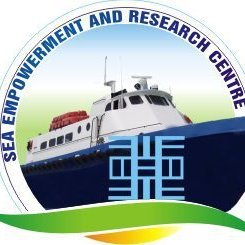A maritime research group under the auspices of the Sea Empowerment Research Centre, has stated that Nigeria could lose an estimated N130 bn annually in customs duties, value-added taxes on imports, and other taxes due to reduced port activity caused by losing its logistics hub status.
SEREC, in a statement over the weekend signed by its Head of Research, Mr Eugene Nweke, sent to The PUNCH, added that the government might experience decreased revenue due to reduced port activity, which could impact funding for infrastructure development and essential services.
“Nigeria could lose an estimated N130bn annually in customs duties, VAT on imports, and other taxes due to reduced port activity. This could lead to a 10 to 20 per cent decrease in government revenue, potentially amounting to N300bn to N600bn,” Nweke said.
According to Nweke, Nigeria may lose investment opportunities worth billions of naira as businesses opt for more efficient ports in neighbouring countries.
“Assuming a 20 per cent decline in foreign investment in the logistics sector, Nigeria could lose around N500bn to N1tn in potential investments.
Combining the potential loss of investment and decreased government revenue, Nigeria could face a total loss of around N800bn to N1.6tn,” he said.
He, however, emphasised that the recent reports of Nigeria losing its position as West Africa’s logistics hub are a wake-up call for the government and industry stakeholders.
Nweke maintained that the implications of this development are far-reaching, and it is essential to take immediate action to address the challenges and implement potential solutions.
Nweke, who is also a former National President of the National Association of Government Approved Freight Forwarders, advised that to mitigate these losses, Nigeria should consider implementing potential solutions, such as implementing digital solutions like single-window trade platforms to improve efficiency and reduce costs.
“Developing a national logistics policy backed by infrastructure reform to streamline logistics operations and improve competitiveness. Investing in rail-port connectivity, secure dry ports, and special logistics zones to improve the efficiency and security of logistics operations,” Nweke stressed.
He urged the government to address the challenges of congestion and delays in Apapa and Tincan ports to improve efficiency and reduce costs.
Nweke underscored the importance of digitalising ports and embracing single-window trade platforms, adding that it would help improve efficiency, reduce costs, and enhance the overall logistics experience.
He pointed out that a national logistics policy backed by infrastructure reform is essential to streamlining logistics operations, reducing costs, and improving competitiveness.
“We urge the government to take immediate action to address the challenges and implement potential solutions. We must take immediate action to address the challenges and implement potential solutions. By working together, we can improve Nigeria’s logistics competitiveness, increase economic activity, and enhance its regional trade position,” he said.















